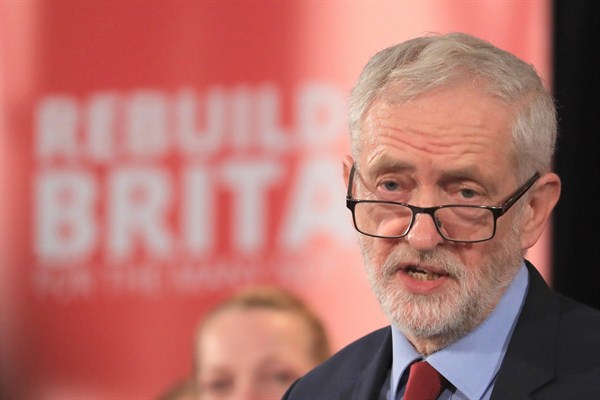One of the more peculiar aspects of contemporary British politics is that the Labour Party, whose membership is overwhelmingly against Brexit, is led by Jeremy Corbyn, a lifelong euroskeptic who has been steadfast in his commitment to Britain leaving the European Union. Even more peculiarly, this doesn’t seem to have dented his popularity at all. Labour members still idolize him, brandishing slogans to “love Corbyn, hate Brexit,” even though he has promised that Brexit would still go ahead under a Labour government.
There are those who believe that Corbyn supports Brexit out of ideological reasons—namely an opposition to EU rules on state aid that might constrain his ability to pursue a stridently left-wing economic agenda and neuter two of his 2017 election manifesto proposals: to establish a state investment bank and state-funded regional energy suppliers. But it’s more likely that his commitment to leaving the EU is driven by electoral arithmetic. Roughly 61 percent of the constituencies won by Labour in the 2017 general election—when the Conservative Party lost its majority in Parliament and Labour gained 30 seats with 40 percent of the vote, its highest share since 2001—are estimated to have voted for Leave in the Brexit referendum a year earlier. By contrast, 65 percent of voters who backed Labour in the previous general election in 2015, when the party was trounced by the Conservatives and lost 26 seats, voted for Remain.
This internal division is further complicated by the fact that Labour’s electoral coalition is made up largely of metropolitan voters, based in affluent, Remain-backing cities like London, Manchester and Liverpool, and a working-class vote spread across smaller, post-industrial towns that voted Leave. Although the former outnumber the latter, they’re concentrated in parliamentary constituencies with large majorities. Therefore, small town voters hold more sway under Britain’s first-past-the-post electoral system, where the winning candidate takes all, even if they win their seat by a single vote.

